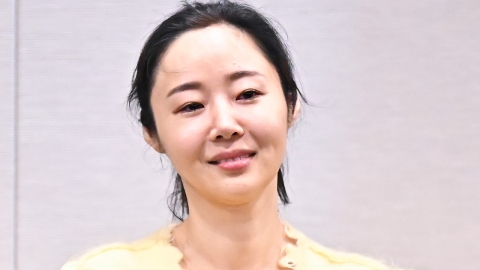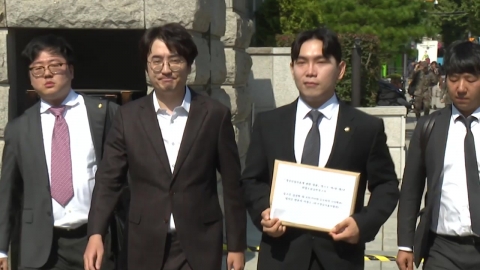■ Telephone connection: Heo Joon-young, professor of economics at Sogang University
* The text below may differ from the actual broadcast content, so please check the broadcast for more accurate information. Please specify [YTN NewsNOW] when quoting.
[Anchor]
Ask a professional about a hot issue. It's an issue call. Earlier today, the Bank of Korea's Monetary Policy Committee held a monetary policy direction meeting and cut its key interest rate by 0.25%p to 3.25%. It is the first monetary policy change in 38 months. Looking at the background of the cut, the decline in consumer price growth is cited. Consumer inflation stood at 1.6% in September, well below the BOK's 2% target.In addition, domestic consumption and investment have rarely recovered, leading to pressure from some in the government to cut interest rates. Concerns remain that a rate cut could spur real estate investment and household loans in the metropolitan area and other regions. It could add fuel to the recent slowdown in household loans and rising housing prices. Let's connect Heo Joon-young, a professor of economics at Sogang University, with the background and outlook of the interest rate cut. Professor, you're out, right?
[Heo Joon-young]
Hello.
[Anchor]
How are you? The Bank of Korea cut our benchmark interest rate by 0.25 percentage point today.What's behind the cut?
[Heo Joon-young]
Recently, the Fed made a big cut, so the exchange rate has stabilized. And in terms of household debt, the rise in housing prices in the metropolitan area is slowing down. As the sluggish domestic demand is prolonged, I think it is necessary to cut interest rates to cope with the sluggish domestic demand.
[Anchor]
Analysts say they have considered concerns about a recession, but can the economy recover a little from this rate cut?
[Heo Joon-young]
0.25 may or may not be big to revive the game.In any case, there are problems with vulnerable borrowers that we are thinking about, or there are parts where households cannot increase consumption due to high interest rates, or there are parts where the industry can recover a little more only when interest rates fall, such as real estate PF. In this regard, it seems that there can be a positive effect on boosting domestic demand.
[Anchor]
It's not just a positive impact. Above all, you must have been worried that lowering interest rates could encourage household loans again, but do you think the benefits outweigh the losses?
[Heo Joon-young]
is correct. And household loans are not just a function of interest rates, but all of these things seem to affect what real estate supply policies the government has, what financial policies the financial authorities have, for example, on loans. If you look at the Bank of Korea's announcement now, anyway, the 8.8 real estate supply policy recently issued by the government, or the part where the loan side is raising the loan interest rate a little and managing the loan. I think these things will gradually work with a time difference. In that respect, I think it is more right to respond to the sluggish domestic demand while putting aside some concerns about household debt. Many people think that interest rates were low when housing prices rose quickly in the past, but you can think that interest rates change a lot just because they are 0.2, but it will depend on what the market expects to see if interest rates will go down faster in the future. In that respect, the Bank of Korea seems to have clearly given a warning today that interest rate cuts will not take place quickly in the future.
[Anchor]
Amid these concerns, some predict that there will be no more rate cuts this year. In fact, at today's meeting, five out of six members of the Monetary Policy Committee expressed their opinion that interest rates should be frozen next month, so the possibility of further cuts this year is unlikely, right?
[Heo Joon-young]
And I think the signal that lowering interest rates once and twice in a row can give to the real estate market in particular is very different. In this regard, the Bank of Korea, which is worried about a sharp rise in household debt, is unlikely to cut interest rates twice in a row, but rather, it will take time to check how the rate cut affects the housing market and household debt before further lowering rates.
[Anchor]
Now, the key to a rate cut seems to be to restore the domestic economy while stimulating prices as little as possible. I'll look forward to it. Let's stop here. I was with Professor Heo Jun-young of Sogang University's Department of Economics. Thank you, professor.
[Heo Joon-young]
Thank you.
※ 'Your report becomes news'
[Kakao Talk] YTN Search and Add Channel
[Phone] 02-398-8585
[Mail] social@ytn.co.kr
[Copyright holder (c) YTN Unauthorized reproduction, redistribution and use of AI data prohibited]
!["Korean slang. In other countries...""Let's reflect on ourselves first." [Anchor Report]](https://image.ytn.co.kr/general/jpg/2024/1011/202410111518456834_h.jpg)





![[After playing the game] Between "Soul-like" and "Action-like"...Which one?](https://image.ytn.co.kr/general/jpg/2024/1011/202410111054554736_h.jpg)
